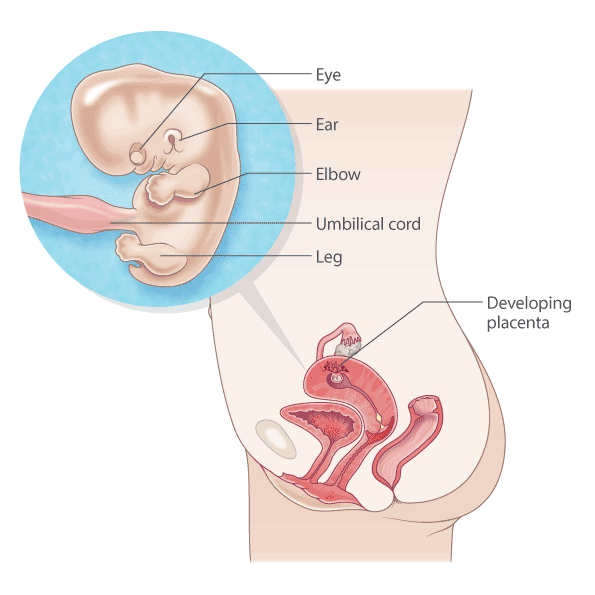
Pregnancy at 9 Weeks: A Comprehensive Guide
Pregnancy is a remarkable journey filled with significant changes and milestones. At 9 weeks, you have officially entered the second trimester, and your body and baby are undergoing rapid development. This comprehensive guide will provide you with an in-depth understanding of the physical, emotional, and medical aspects of pregnancy at 9 weeks.
Physical Changes
- Uterus Growth: Your uterus has expanded significantly, reaching the size of a grapefruit. It is now located above your pelvic bone and may cause a slight bulge in your abdomen.
- Breast Tenderness: Your breasts continue to grow and become more sensitive due to increased hormone levels.
- Fatigue: Extreme fatigue is common during this trimester as your body adjusts to the hormonal changes and the demands of pregnancy.
- Morning Sickness: While morning sickness typically peaks around 8 weeks, it can still be present at 9 weeks. Nausea and vomiting may occur at any time of day.
- Frequent Urination: The increased blood flow to your kidneys leads to more frequent urination.
- Skin Changes: Your skin may become darker in certain areas, such as your nipples, areolas, and midline of your abdomen.
Fetal Development
- Size and Appearance: Your baby is now about the size of a grape, measuring approximately 1.5 inches in length. The head is disproportionately large, and the facial features are becoming more defined.
- Heart Development: The baby’s heart is fully formed and beating at a rapid rate of 150-170 beats per minute.
- Limb Development: Arms and legs are developing rapidly, and fingers and toes are beginning to form.
- Organ Formation: Major organs, such as the brain, lungs, and kidneys, are continuing to develop.
- Movement: While you may not feel it yet, your baby is actively moving and kicking inside the uterus.
Emotional Changes
- Mood Swings: Hormonal fluctuations can lead to mood swings, irritability, and tearfulness.
- Anxiety and Stress: It is normal to experience some anxiety and stress during pregnancy. Talk to your healthcare provider if these feelings become overwhelming.
- Increased Energy: As morning sickness subsides, you may notice an increase in energy levels.
- Bonding with Baby: As your pregnancy progresses, you may start to feel a stronger bond with your baby.
Medical Care
- Prenatal Appointments: Regular prenatal appointments are essential for monitoring your health and the baby’s development.
- Ultrasound: An ultrasound may be performed around 9 weeks to confirm the pregnancy, check the baby’s heartbeat, and assess the size and location of the uterus.
- Blood Tests: Blood tests may be ordered to check your blood type, Rh factor, and hormone levels.
- Genetic Screening: Genetic screening tests can be offered to assess the risk of certain genetic conditions.
Lifestyle Recommendations
- Nutrition: Eat a healthy diet rich in fruits, vegetables, whole grains, and lean protein.
- Hydration: Stay well-hydrated by drinking plenty of water throughout the day.
- Exercise: Engage in moderate exercise, such as walking, swimming, or prenatal yoga.
- Sleep: Aim for 7-9 hours of sleep each night.
- Avoid Alcohol and Smoking: It is crucial to avoid alcohol and smoking during pregnancy.
- Manage Stress: Practice stress-reducing techniques such as meditation, yoga, or spending time in nature.
Common Concerns
- Miscarriage: The risk of miscarriage decreases significantly after 9 weeks, but it is still important to be aware of the signs and symptoms.
- Ectopic Pregnancy: An ectopic pregnancy occurs when the fertilized egg implants outside the uterus. This is a medical emergency and requires immediate treatment.
- Bleeding or Cramping: Light bleeding or cramping can be normal in early pregnancy, but excessive or severe bleeding should be reported to your healthcare provider.
- Vaginal Discharge: A clear or white vaginal discharge is normal during pregnancy. However, if the discharge becomes foul-smelling or discolored, it may indicate an infection.
Conclusion
Pregnancy at 9 weeks is a time of significant physical, emotional, and medical changes. By understanding these changes and following the recommended lifestyle recommendations, you can support your health and the well-being of your developing baby. Remember to attend regular prenatal appointments, listen to your body, and don’t hesitate to reach out to your healthcare provider with any concerns.